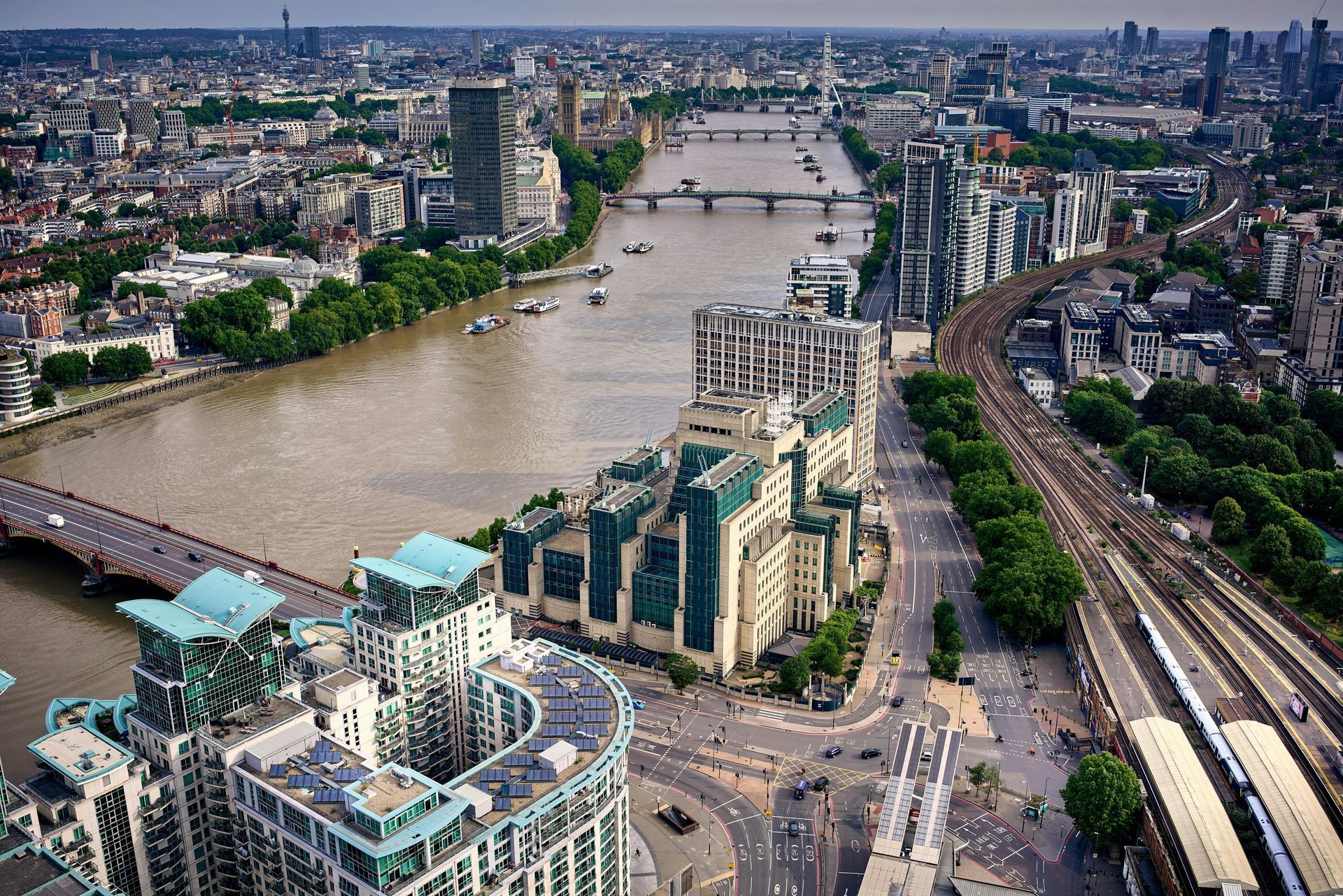Budget 2024: Capping of valuable IHT relief - Bad for Business and Farm Alarm
Andy Wood • November 5, 2024

Budget 2024: Capping of valuable IHT relief - Bad for Business and Farm Alarm
Firstly, let’s be honest, its great to see HMRC referring to Business Property Relief again. None of that Business Relief nonsense that has crept in over recent years.
I would say that is probably the most significant part of the Budget.
Of course, you might also be interested in the pretty seismic cuts to:
- Business Property Relief; and
- Agricultural Property Relief
You are?
That’s disappointing. I was hoping to save my poor fingers.
Here we go then.
Business Property Relief (“BPR”)
The Budget announced that both BPR and APR will become subject to a £1m cap from April 2026.
Presently, there is no cap on either meaning, that assuming assets qualify for the relief, both lifetime gifts and assets in the death estate can benefit from relief at a rate which is often 100%.
In respect of BPR, for example, the shares in an unquoted, family trading business will qualify for BPR at 100% as long as the shares have been held for two years.
This means that they can be:
transferred into trust without an immediate IHT charge (and often no 10 year charge and no exit charge if the assets are still held at the relevant time);
the subject matter of an outright gift and, even it that PET fails, there will be no IHT; and
form part of the death estate without there being an IHT charge
As I say, the value of relief could be unlimited.
However, there is now a cap of £1m.
Beyond that, relief is capped at 50%.
It should be noted that these changes only apply to the 100% rate. The following business property will qualify for 100% relief:
- property consisting of a business or interest in a business;
- unquoted securities of a company which give the transferor control of the company immediately before the transfer;
- any unquoted shares in a company (see below re changes to AIM shares)
If the assets only qualified for the existing 50% rate, for example, a controlling interest in a quoted company, then the new rules do not effect the position – 50% relief applies to the entire value (and does not use up any of the cap).
Agricultural Property Relief (“APR”)
The same cap will also apply to agricultural land.
The following agricultural assets qualify for 100% relief:
where there is a right to vacant possession, or vacant possession is obtainable within 12 months (extended, by concession, to 24 months and to circumstances where the tenanted value and vacant possession values are broadly similar).
where the property is let on a tenancy beginning after 31 August 1995 (or, in Scotland, a tenancy acquired after that date by right of succession).
where the transferor was beneficially entitled to the interest transferred before 10 March 1981 and relief would have been available under the rules then in force.
Again, the first £1m of value related to these assets will qualify for the 100% relief with the balance being subject to relief at just 50%.
For assets which already only qualify for 50% relief, these are unaffected by the changes.
Interaction of BPR and APR under the new £1m Cap
The £1m cap applies across both. In other words, you don’t get £1m for BPR and £1m for APR… the spoilsports.
Instead, the cap is allocated proportionality over agricultural and business assets.
So, in a scenario where Jimmy has the following assets qualifying for BPR / APR reliefs at 100%:
- £3m of BPR assets; and
- £2m of APR assets
The cap is allocated as £3m/£5m x £1 = £600k to BPR and £2m/£5m x £1m = £400k to APR assets.
The balances receive relief at 50%.
The £1m Allowance and Trusts
A trust will also get a £1m allowance to cover the 10 year charge and also exit charges.
It will be applied in the same way, with any assets that qualify for the 100% relief being exempt up to the first £1m with the balance being subject to tax at 50%.
Where a person sets up multiple trusts on or after 30 October 2024, we are told that there will be anti-avoidance rules that split the allowance between those trusts.
AIM Shares
In addition, AIM shares will no longer benefit from 100% relief where held for two years.
This is because relief of 50% will now apply to any shares that are listed on non-recognised stock exchanges. The AIM market will be such an exchange (ie not a recognised exchange).
This removes an odd feature of the legislation that I have commented on quite a few times in the past. Click here to read.
Conclusion
These are really big changes which will fetter the ability of business owners and / or farmers to pass on their businesses to the next generation of the family.
As such, consideration will need to be given on alternative plans such as outright gifts and life insurance.
Have questions about tax matters?
Contact us or make an appointment with one of our experienced tax advisors.
Want to learn more about how you can unlock the full potential to protect and
grow your family wealth?

Introduction More wealthy UK residents are exploring life overseas ahead of the 2026/27 tax year. Higher UK taxes, political uncertainty and a desire for a different way of living are all pushing people to look at alternatives. Four destinations stand out for high-net-worth UK individuals as at late 2025: 1. United Arab Emirates (Dubai) 2. Portugal 3. Switzerland 4. Malta Each offers a different blend of tax advantages, residency options and lifestyle. United Arab Emirates (Dubai) - Dubai is now the default choice for many UK entrepreneurs and professionals. Tax For individuals, there is currently no personal income tax on salaries, bonuses or most investment income, and no local capital gains or inheritance tax regime for individuals. There is VAT and a developing corporate tax regime, but personal tax remains far lighter than in the UK. The UK–UAE double tax treaty helps reduce the risk of the same income being taxed twice and needs to be considered alongside UK residence rules. Residency Common routes for UK nationals include: Employer- or company-sponsored residence visas Remote-worker visas for those employed or self-employed abroad Long-term “golden” style visas linked to investment, property or professional status Retirement options for over-55s. (All require private health insurance and periodic renewal.) Lifestyle Dubai offers a high standard of living, excellent connectivity and a large, well-established British community. Housing and schooling are expensive and the lifestyle can encourage overspending, but for many the tax position and opportunity outweigh the costs. Best for: Maximising net income and building or scaling a business in a dynamic, international city. Portugal - Portugal appeals to those who want EU residency, a milder climate and a slower pace of life. Tax The old NHR regime has closed to new applicants and been replaced by a newer incentive framework (often referred to as IFICI) aimed at certain professionals and activities. The UK–Portugal tax treaty reduces double taxation, and Portugal does not operate a classic wealth tax, though property-related charges can apply. (It's signed and ratified but not yet fully in force as of early 2026, which may slightly affect immediate tax planning). Residency Post-Brexit, common routes for UK nationals include: D7 visa – for those with sufficient passive income (pensions, investments, rentals). D8 / Digital Nomad visa – for remote workers with qualifying income from abroad. Work and other residence visas tied to employment or specific skills. These can lead to long-term residence and, ultimately, citizenship if physical presence and integration tests are met. Lifestyle Cost of living is generally below the UK (though higher in central Lisbon and the Algarve), English is widely spoken in cities, and the public and private healthcare systems are well regarded. There are large British and wider international communities. Best for: Those wanting EU residence, good quality of life and a balance of tax and lifestyle advantages. Switzerland - Switzerland attracts UK families who prioritise security, discretion and top-tier services. Tax Tax is set at federal, cantonal and communal level, so overall rates vary widely by canton. Well-chosen cantons can be very competitive for both individuals and companies. Private capital gains are not generally taxed, but there is an annual wealth tax on net assets, with rules depending on location. For suitable non-working individuals, some cantons still offer lump-sum (forfait) taxation, where tax is based on living costs rather than worldwide income, subject to minimum levels and conditions. Residency As non-EU nationals, UK citizens use: B permits – time-limited residence, often linked to work L permits – short-term residence for specific assignments C permits – longer-term settlement after sustained residence and integration Wealthy retirees and non-working individuals may be able to obtain residence based on financial self-sufficiency and, in some cantons, lump-sum taxation. Lifestyle High costs are offset by excellent infrastructure, schools and healthcare (with compulsory private health insurance). International communities are strong in Zurich, Geneva and other cities, though social life can feel more formal than Southern Europe. Best for: Those seeking stability, discretion and first-class public services and education, rather than the lowest day-to-day costs. Malta - Malta is a compact EU state with a very familiar feel for UK nationals: English is an official language and the legal and business environment is comfortable for British professionals. Tax Malta’s tax system and UK–Malta treaty can be particularly attractive where you hold significant foreign-source income. Under the Global Residence Programme, qualifying individuals can pay a favourable flat rate on foreign income remitted to Malta, while foreign capital gains kept offshore are generally not taxed in Malta. There is no separate wealth tax and no classic inheritance tax, though duties may apply to certain Maltese assets. The separate “golden passport” (citizenship by investment) route has been struck down by the EU’s top court, but residence programmes remain available. Residency Options for UK citizens include: Employer-sponsored Single Permits combining work and residence The Global Residence Programme for financially self-sufficient individuals meeting property and minimum tax thresholds Digital-nomad-style visas for remote workers Long-term residence after several years of compliant stay Lifestyle Costs (especially rent and property) are typically lower than in the UK outside the most fashionable areas. English is widely used in government and business, healthcare is solid, and London is only a short flight away. Best for: Those wanting an English-speaking EU base with favourable treatment of foreign-source income and a tight-knit expat community. How to decide & next steps - All four countries can work extremely well for UK high-net-worth individuals, but for different profiles: Choose Dubai if your priority is low personal tax on active income and you are comfortable with a high-energy city. Choose Portugal if EU residency, climate and lifestyle matter as much as tax. Choose Switzerland if stability, education and healthcare are at the top of your list. Choose Malta if you want an English-speaking EU base with flexible options for foreign income. The right answer depends on your overall wealth, income mix, family plans and how tied you remain to the UK. If you would like bespoke, confidential advice on whether remaining UK-resident or relocating to Dubai, Portugal, Switzerland or Malta is the better strategy for your situation, you are welcome to get in touch to explore your options in detail.

